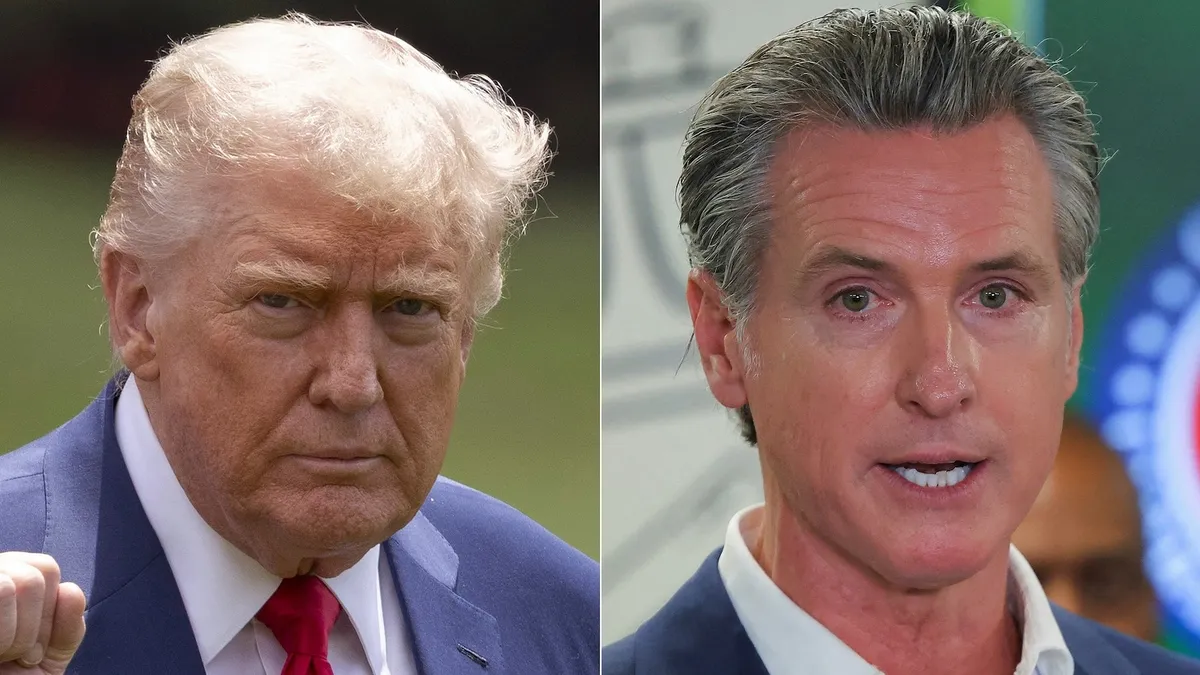
In a dramatic escalation of conflict, President Donald Trump and California's Democratic Governor Gavin Newsom clashed on Monday regarding the handling of protests in Los Angeles, which were sparked by Trump's controversial immigration policies. The situation intensified after Newsom publicly objected to Trump's decision to send in the National Guard without his consent. In response, Trump ordered hundreds of Marines to assist in the city, further stoking the flames of tension.
As Trump returned to the White House after a weekend retreat at Camp David, he made headlines by suggesting he would arrest Newsom if he were in the position of border czar Tom Homan. This statement came just hours after Homan clarified that there had been no discussions about arresting the governor. “I would do it if I were Tom. I think it’s great,” Trump told reporters on the South Lawn, indicating his support for a more aggressive approach.
Newsom did not take Trump's comments lightly. He took to Instagram to express his outrage, stating, “The President of the United States just called for the arrest of a sitting Governor. This is a day I hoped I would never see in America.” He emphasized that such a call transcends party lines, asserting, “This is an unmistakable step toward authoritarianism.”
During a White House event, Trump was confronted by ABC News White House Correspondent Karen Travers, who asked him to specify the crime Newsom had committed to warrant such extraordinary measures. Trump responded, “I think his primary crime is running for governor because he’s done such a bad job.” This comment further highlighted the growing rift between the federal government and California's leadership.
Homan, who had previously suggested that no one is above the law, clarified his earlier remarks during an interview on Fox News. He stated, “You can protest, you got your First Amendment rights, but when you cross that line… that’s a crime.” Homan reiterated the Trump administration's strict stance on law enforcement, emphasizing that any actions that impede law enforcement would not be tolerated.
Trump also reaffirmed his decision to deploy the National Guard to California, despite Newsom's objections. This decision marks a significant shift from Trump's previous stance in 2020, where he stated that a governor's request was needed for such deployments. When questioned about this inconsistency, Trump remarked, “The biggest change from that statement is we have an incompetent governor.”
Despite the legal implications surrounding the use of military forces on U.S. soil, Trump invoked Title 10 of the U.S. Code to justify the deployment of Marines. Shortly after his comments, a U.S. official confirmed that 700 Marines from Twentynine Palms, California, had been ordered to assist on the streets of Los Angeles, although the specifics of their role remained unclear.
In response to Trump's actions, Newsom announced that California would be suing the administration. He accused Trump of unlawfully federalizing the National Guard, stating, “The order he signed doesn’t just apply to CA. It will allow him to go into ANY STATE and do the same thing. We’re suing him.” This legal battle is expected to add another layer of complexity to the already contentious relationship between state and federal authorities.
As tensions continue to rise, the implications of this conflict are vast, affecting not only California but potentially setting a precedent for how federal and state governments interact during times of crisis.